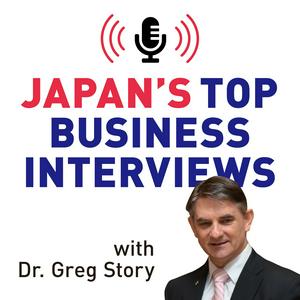258 Duncan Harrison, Managing Director, JAC International
“In Japan, if you want performance, you need ultra-clear expectations—people need to know the goal.” “Building trust means creating a safe environment where it’s okay to make mistakes.” “Consensus-building is not optional in Japan—it’s how decisions gain traction.” “Every new joiner has lunch with me and a one-on-one at three months—connection matters.” “Leading is about inspiring, guiding, and empowering people toward a common purpose.” Previously Duncan was Executive Director-Head of Asia Hamlyn Willams; Country Manager, Robert Walters, Korea; Associate Director, Commerce Finance, Robert Walters Japan; Sales Consultant deVere and Partners. He has a BA from the University of East Anglia. Duncan leads with a style that emphasizes clarity, collaboration, and cultural sensitivity, shaped by years of cross-cultural experience. His leadership approach in Japan is grounded in providing clear expectations and maintaining transparency. He recognizes that Japanese team members particularly value knowing exactly what success looks like, so he places a premium on setting ultra-clear goals and regularly celebrating achievements. Monthly gatherings that spotlight individual and team successes help reinforce collective motivation and performance. He builds trust by being approachable and relational. Every new hire is welcomed with a personal lunch on their first day, and after three months, each has a one-on-one coffee chat with him to reflect on their experience. Even in a 60-person organization, he maintains these touchpoints to foster an open culture and reinforce that leadership is accessible. Duncan also leads training sessions himself, using these opportunities to share personal stories of past challenges, signaling humility and building rapport. Understanding Japan’s consensus-driven culture, Duncan avoids top-down decision-making. Instead, he practices “nemawashi,” engaging associate directors, managers, and often broader teams before implementing changes. This ensures decisions are well-received and supported. He contrasts this approach with his leadership experiences in China, where decisions were expected to come unilaterally from the top, and Korea, which he found to be more individually driven. Encouraging innovation and open communication is another hallmark of Duncan’s leadership. To surface ideas, he established anonymous suggestion boxes and encourages feedback during regular check-ins. He emphasizes psychological safety, particularly when discussing mistakes or failed innovations. Creating an environment where it’s safe to fail is, in his view, essential to fostering creativity and long-term growth. He also sees training as a core responsibility. New employees follow a structured two-month onboarding program, led by a combination of managers, HR, and himself. Observational learning is built in, with new staff shadowing client and candidate meetings across teams. His goal is not only skill-building but also early immersion into the company’s values and standards. Duncan is deeply attuned to cultural and demographic shifts. He’s pragmatic about Japan’s aging and shrinking workforce and the limited pool of bilingual professionals. Rather than resist these constraints, he adapts by hiring internationally minded Japanese staff and experienced recruiters from other firms, and by setting realistic expectations for new leaders entering the Japanese market. His definition of leadership centers on inspiring, guiding, and empowering people toward a shared goal. He believes that leaders must earn trust and encourage followership—not through command, but through empathy, clarity, and inclusion. For foreign leaders new to Japan, his advice is to avoid trying to impose outside systems without first understanding the local context, to invest time in building trust and communication channels, and to respect the nuance behind why things are done a certain way. In Duncan’s experience, leading in Japan requires humility, patience, and a commitment to listen before acting.



